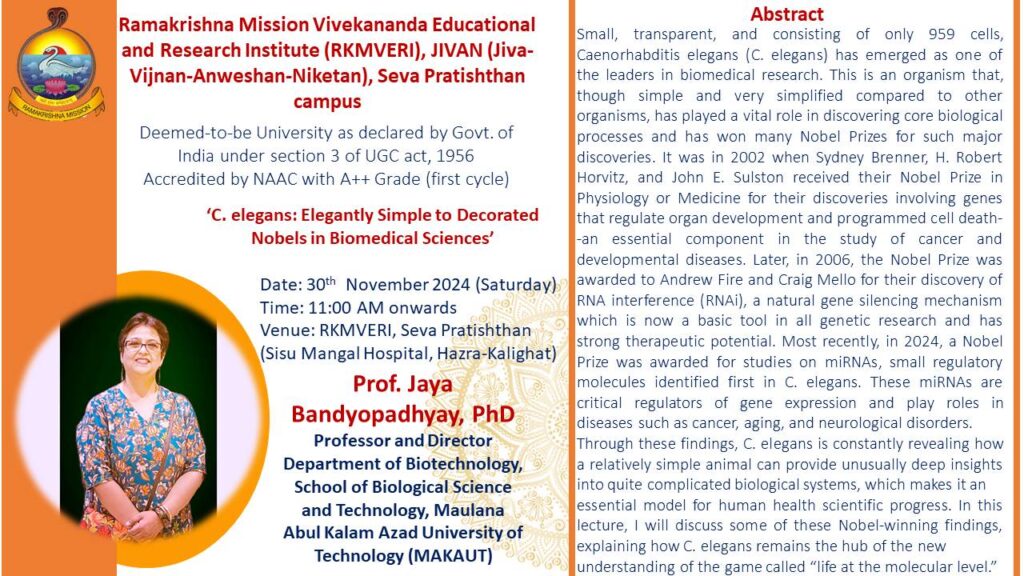We are delighted to welcome Prof. Jaya Badyopadhyay from Dept. of Biotechnology, School of Biological Sciences, Maulana Abul Kalam Azad University, Kolkata for an insightful talk on “C. elegans: Elegantly Simple to Decorated Nobels in Biomedical Sciences” on 30 November 2024, 11 AM onwards at JIVAN – Centre for Research in Biological Sciences, Ramakrishna Mission Seva Pratisthan.
Speaker: Prof. Jaya Badyopadhyay, Dept. of Biotechnology, School of Biological Sciences, Maulana Abul Kalam Azad University, Kolkata
Abstract
Small, transparent, and consisting of only 959 cells, Caenorhabditis elegans (C. elegans) has emerged as one of the leaders in biomedical research. This is an organism that, though simple and very simplified compared to other organisms, has played a vital role in discovering core biological processes and has won many Nobel Prizes for such major discoveries. It was in 2002 when Sydney Brenner, H. Robert Horvitz, and John E. Sulston received their Nobel Prize in Physiology or Medicine for their discoveries involving genes that regulate organ development and programmed cell death–an essential component in the study of cancer and developmental diseases. Later, in 2006, the Nobel Prize was awarded to Andrew Fire and Craig Mello for their discovery of RNA interference (RNAi), a natural gene silencing mechanism which is now a basic tool in all genetic research and has strong therapeutic potential. Most recently, in 2024, a Nobel Prize was awarded for studies on miRNAs, small regulatory molecules identified first in C. elegans. These miRNAs are critical regulators of gene expression and play roles in diseases such as cancer, aging, and neurological disorders. Through these findings, C. elegans is constantly revealing how a relatively simple animal can provide unusually deep insights into quite complicated biological systems, which makes it an essential model for human health scientific progress. In this lecture, I will discuss some of these Nobel-winning findings, explaining how C. elegans remains the hub of the new understanding of the game called “life at the molecular level.”
| Faculty/Staff Name | Details |
|---|---|
| Kunal Sikder (Primary Coordinator) | Biomedical Science and Technology – Narendrapur Campus |


